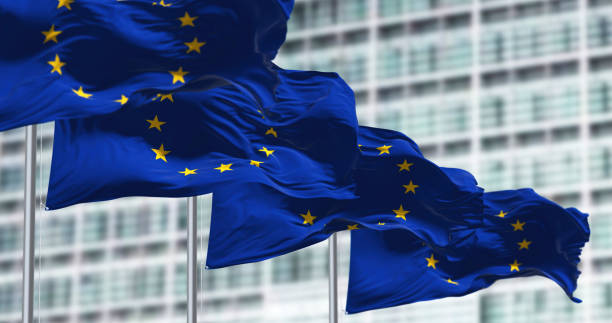
As Eurozone leaders prepare for crucial political milestones in 2024, including European Parliament elections in June and German state elections in September, the economic landscape offers little reassurance against the rise of populist parties. Despite potential global and Eurozone growth, subsiding inflation, and the possibility of interest rate cuts by the European Central Bank (ECB), these economic improvements may not significantly influence the political climate in time for the upcoming elections.
Economic Growth and Political Risks
The Eurozone’s established political parties face the threat of losing ground to populist movements like France’s National Rally and Germany’s AfD amidst economic uncertainty. Even though economic indicators suggest a recovery, with a pickup in growth and easing inflation, the short-term impact on voter sentiment may be minimal. This situation is particularly acute in Germany, where Chancellor Olaf Scholz’s coalition faces internal challenges and rising support for the AfD.
Strikes and Protests Adding to Tensions
The political scene is further complicated by strikes and protests across the Eurozone, including significant actions by farmers and transportation workers in Germany and France. These disruptions, coupled with the economic challenges, contribute to a tense environment ahead of the elections.
ECB’s Role and Economic Projections
The ECB’s potential rate cuts are unlikely to provide a substantial boost to the economy in the short term. Projections using the SHOK model indicate that even aggressive rate cutting scenarios would only marginally impact GDP growth by the end of the year, offering little relief to voters concerned about economic issues.
Inflation and Living Standards
One potential bright spot could be an improvement in real incomes, as wage growth begins to outpace inflation. However, the lasting impact of high prices and the cost-of-living crisis may continue to influence voter sentiment, overshadowing any economic gains.
Immigration and Security Concerns
Beyond economic factors, issues such as immigration and the war in Ukraine are significant concerns for Eurozone voters, potentially driving support for populist and EU-skeptic parties. These deeper anxieties reflect broader fears about economic stability and social cohesion, which populist movements may exploit.
Limited Scope for Government Intervention
With high levels of debt across the Eurozone, governments have limited capacity to implement fiscal measures that might alleviate economic pressures on households. As a result, Eurozone citizens may face continued financial challenges, with rising costs outpacing wage growth.
The Eurozone’s political landscape in 2024 is shaped by a complex interplay of economic, social, and security concerns. While there is some hope for economic improvement, the timing and scale of these changes are unlikely to significantly alter the political dynamics or counter the rise of populist parties in the upcoming elections.
Featured image credit: rarrarorro via Getty Images
